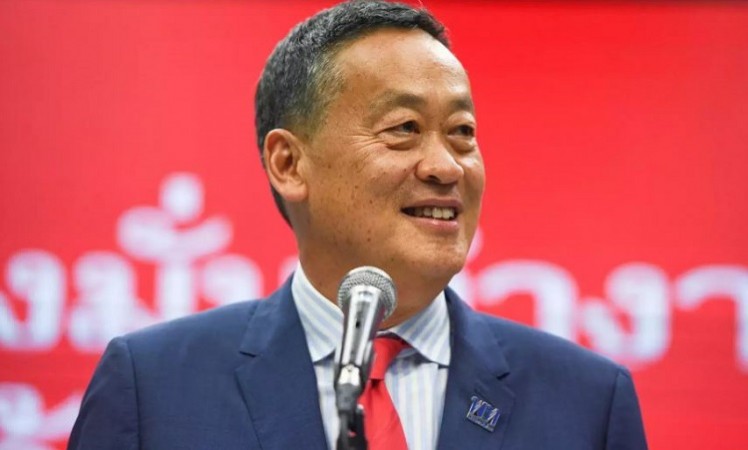
BANGKOK: Thai King Maha Vajiralongkorn has granted his official approval for Srettha Thavisin to step into the role of Prime Minister of Thailand, according to a statement from the House Speaker's representative on Wednesday.
During a press briefing, Kampee Ditthakorn, the spokesperson for the House Speaker, revealed that the President of the National Assembly had communicated the outcome of the prime ministerial election to the King through a formal letter. Subsequently, King Maha Vajiralongkorn has given his endorsement for Srettha Thavisin to become the 30th Prime Minister of the nation.
In a scheduled event, the Secretariat of the House of Representatives will convey the royal approval to the headquarters of the Pheu Thai Party at 6 p.m. local time. The Xinhua news agency cited the spokesperson, who shared this information.
Srettha Thavisin secured the position of Thailand's new Prime Minister following a collective vote by the bicameral parliament on Tuesday. The 60-year-old former real estate magnate made his foray into the realm of politics shortly before the general elections in May. He swiftly rose as a prime ministerial contender representing the Pheu Thai Party.
Significantly, the past two decades of Thai political history have been dominated by a fierce struggle between parties supporting Thaksin and the influential pro-military and royalist establishment of the country.
On Tuesday, Thaksin was sentenced to an eight-year imprisonment. However, the timing of his return and the decision of the Pheu Thai party to form a power-sharing agreement with pro-military factions have sparked speculation that a secret arrangement might have been made to offer him clemency—despite the party's firm denial of such claims.
The 74-year-old former owner of Manchester City Football Club was transferred from a prison quarantine facility to a police hospital on the subsequent Wednesday. Authorities cited various health issues, including cardiac problems, as the reason for his transfer, emphasizing the need for continuous medical observation and care.
Thaksin, cherished by the economically disadvantaged rural population for implementing policies such as affordable healthcare and a minimum wage, stands in stark contrast to the sentiments of the country's elite. The privileged class views his rule from 2001 to 2006 as characterized by corruption, authoritarianism, and a perceived challenge to the established social order in Thailand.
ustria Advocates Realism in Western Approach to Russia, Highlighting Need for Diplomacy
State media: Iran introduces a sophisticated "Mohajer" drone with increased range
UN Reports Nearly 30 Deaths Among Israelis and Palestinians This Year, Surpassing 2005 Toll